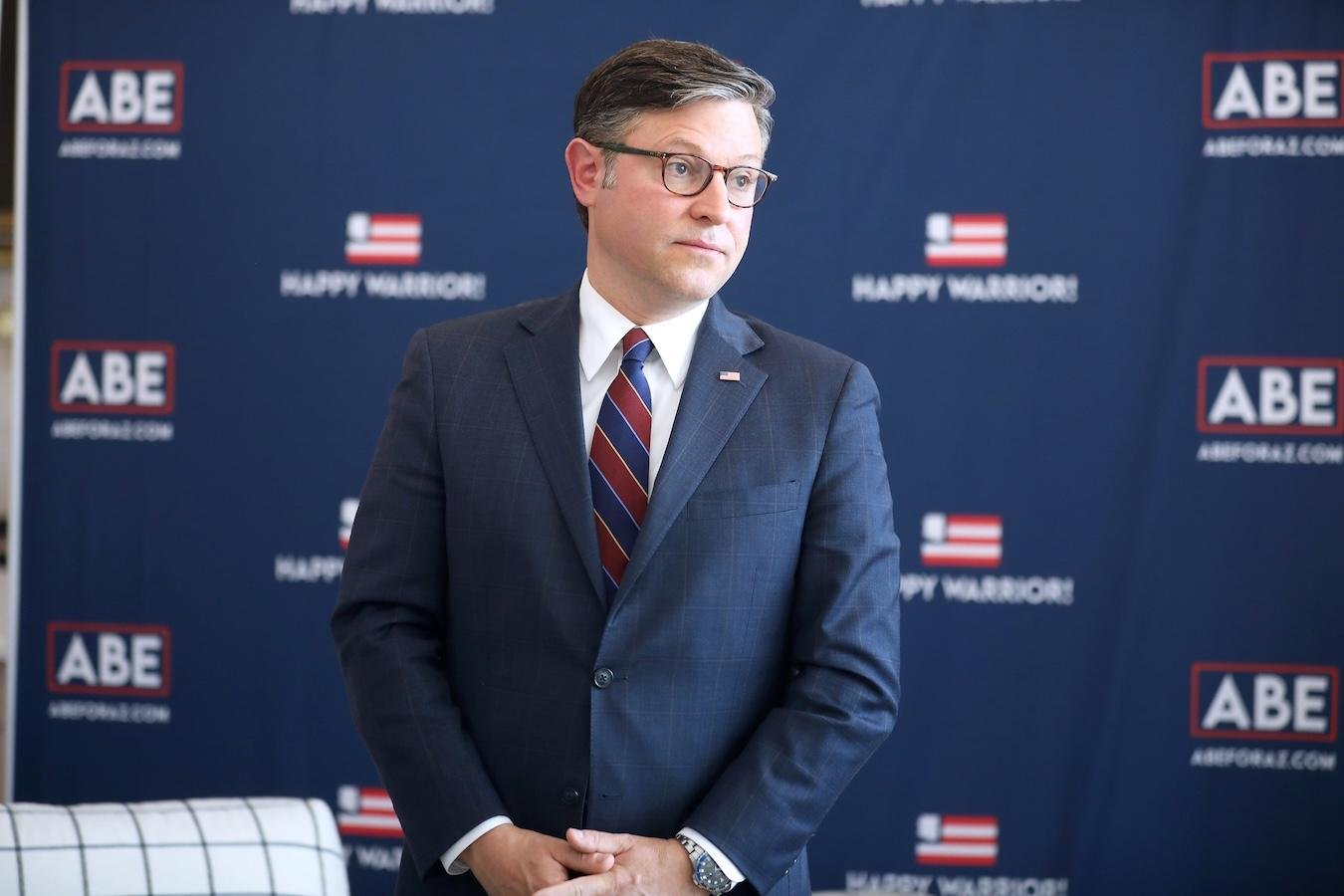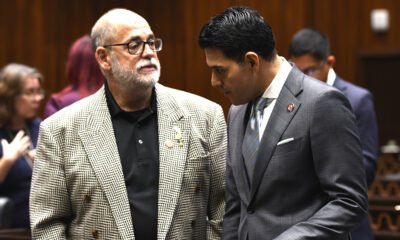Business
Speaker Johnson Fights for Short-Term Spending Fix as Shutdown Deadline Approaches

As the federal funding deadline approaches, House Speaker Mike Johnson is facing criticism from within his own party regarding a proposed short-term budget measure. On Tuesday, he addressed concerns about the continuing resolution, which some Republicans described as a “Christmas tree” laden with unnecessary expenditures.
The bill aims to extend funding for federal programs through March, while also allocating funds for hurricane relief and repairs to the collapsed Francis Scott Key Bridge in Baltimore. Additionally, provisions for supporting American farmers have raised eyebrows among GOP lawmakers, who argue that the measure resembles an omnibus spending bill—a type of legislation that Johnson has previously opposed.
In a news conference on Tuesday, Johnson pushed back against the skepticism, asserting that his colleagues had yet to review the bill. “They haven’t even seen it yet,” he remarked, countering claims that Republican leadership was forcefully pushing this legislation through. He emphasized the necessity of the proposed funding, especially in light of recent hurricanes and the challenges facing farmers.
Johnson clarified that the continuing resolution was not an omnibus bill, but rather a focused measure that needed additional funding due to unforeseen circumstances. “This is a small CR that we’ve had to add things to that were out of our control,” he explained. He expressed concern for those in distress, stating, “We have to be able to help those who are in dire straits.”
The speaker underscored that this measure is designed to provide Congress with breathing room to negotiate full-year spending plans, aiming for a more organized budget process in early 2025. “We’re going to take care of these obligations and get this done,” Johnson stated, indicating that bipartisan cooperation will be essential moving forward.
However, dissent remains among some Republicans. Representative Marjorie Taylor Greene publicly criticized the speaker’s approach, claiming that important programs were being used as bargaining chips. In a post on X, she argued that the continuing resolution was evolving into a three-month omnibus bill, likely leading to more Democratic than Republican support. “I would much rather help farmers and victims of natural disasters than continue a budget I already voted against,” she said.
Representative Nancy Mace echoed these sentiments, accusing Congress of creating a crisis to advance the budget resolution. “DC never lets a good crisis go to waste,” she asserted, labeling the situation as predictable and tiresome.
Current funding for federal programs has remained unchanged since September, when a similar resolution passed with bipartisan support. As the clock ticks down to this Friday’s deadline, the government risks shutting down just before the Christmas holiday unless Congress acts. If approved, the resolution will set the stage for incoming GOP leaders to draft comprehensive spending plans beginning January 20, when they will hold control of both the White House and Congress.


















